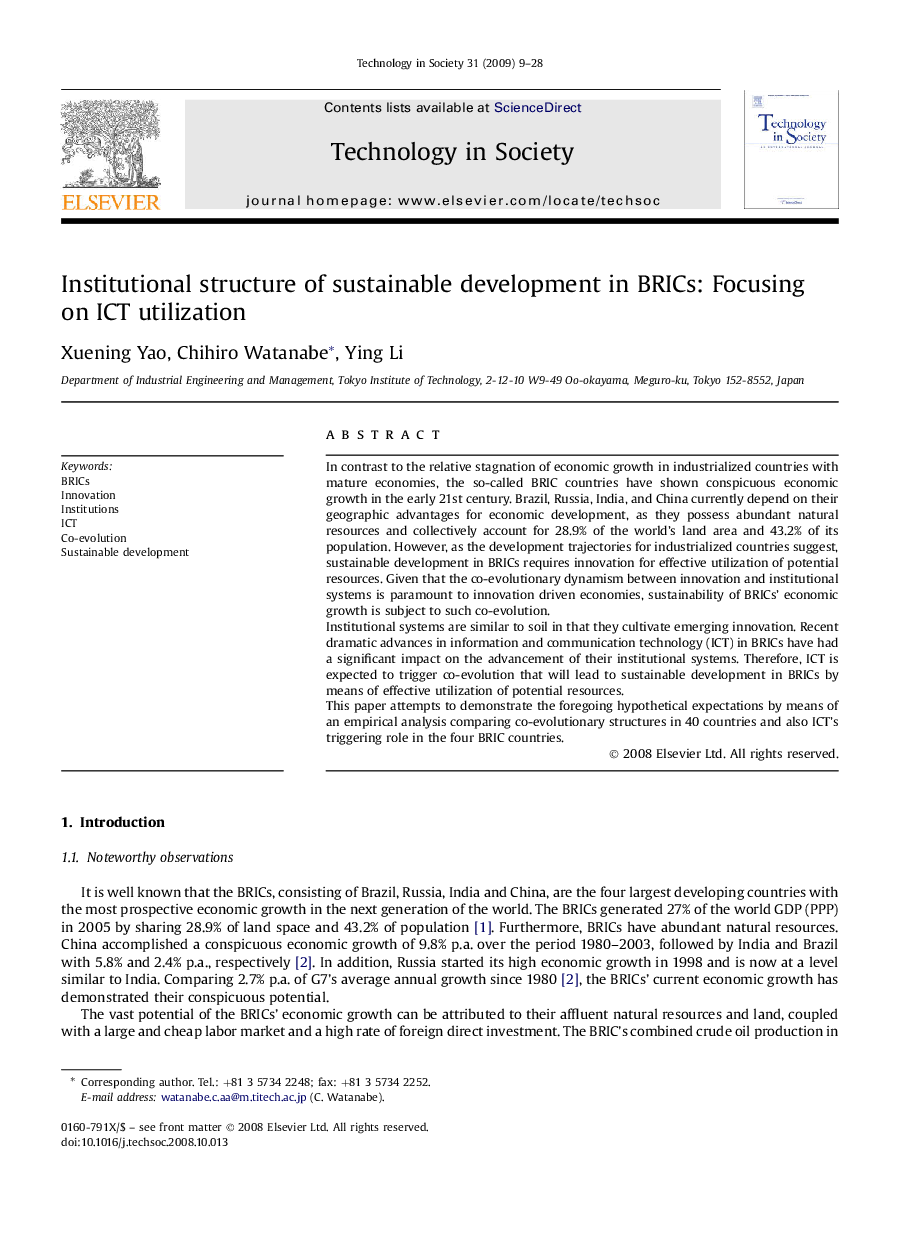| Article ID | Journal | Published Year | Pages | File Type |
|---|---|---|---|---|
| 375447 | Technology in Society | 2009 | 20 Pages |
In contrast to the relative stagnation of economic growth in industrialized countries with mature economies, the so-called BRIC countries have shown conspicuous economic growth in the early 21st century. Brazil, Russia, India, and China currently depend on their geographic advantages for economic development, as they possess abundant natural resources and collectively account for 28.9% of the world's land area and 43.2% of its population. However, as the development trajectories for industrialized countries suggest, sustainable development in BRICs requires innovation for effective utilization of potential resources. Given that the co-evolutionary dynamism between innovation and institutional systems is paramount to innovation driven economies, sustainability of BRICs' economic growth is subject to such co-evolution.Institutional systems are similar to soil in that they cultivate emerging innovation. Recent dramatic advances in information and communication technology (ICT) in BRICs have had a significant impact on the advancement of their institutional systems. Therefore, ICT is expected to trigger co-evolution that will lead to sustainable development in BRICs by means of effective utilization of potential resources.This paper attempts to demonstrate the foregoing hypothetical expectations by means of an empirical analysis comparing co-evolutionary structures in 40 countries and also ICT's triggering role in the four BRIC countries.
